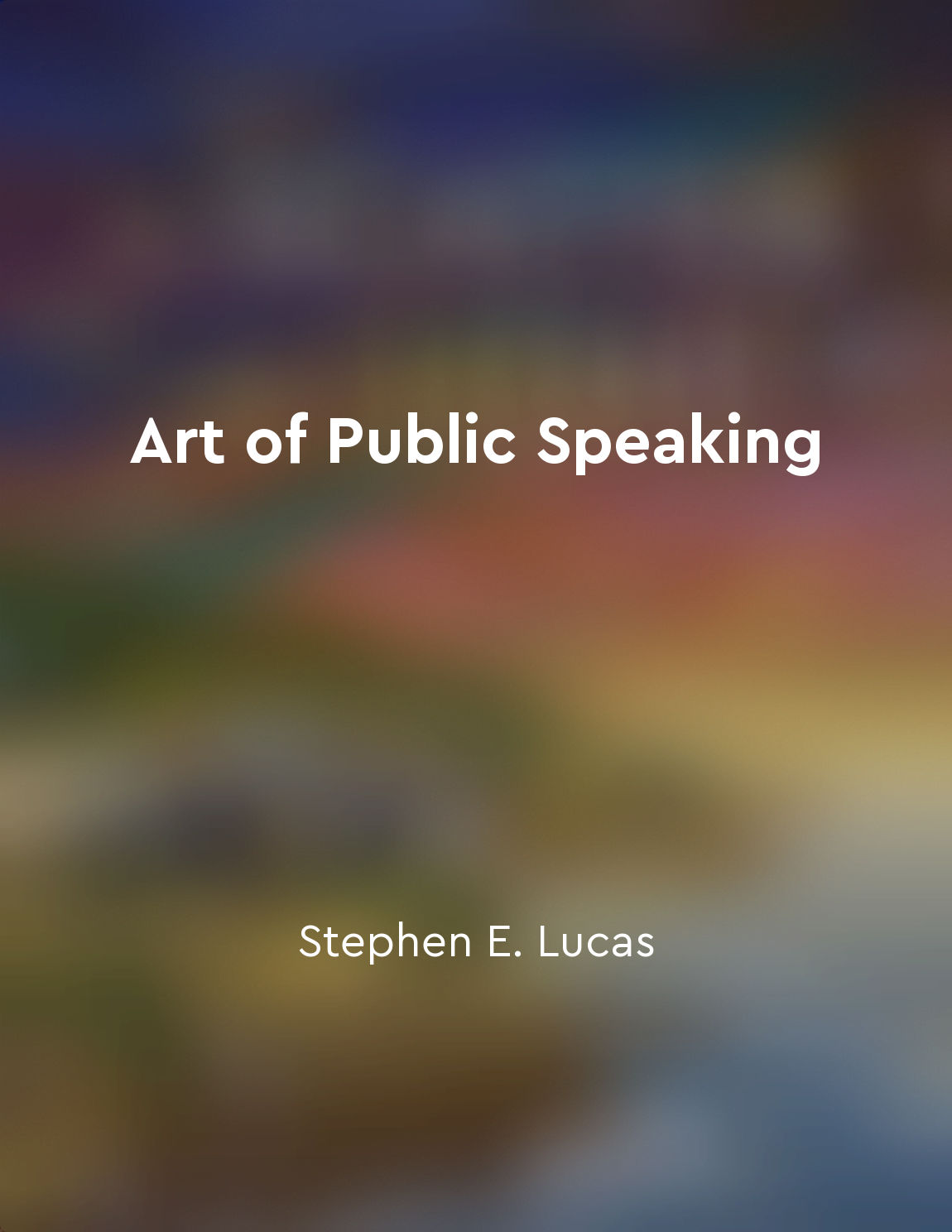Develop strong opening and closing statements from "summary" of Art of Public Speaking by Stephen E. Lucas
A strong opening statement is crucial for capturing the audience's attention and setting the tone for your speech. It should be interesting, relevant, and engaging to draw listeners in from the start. You can begin with a startling statistic, a compelling story, a thought-provoking question, or a powerful quote to pique the audience's curiosity and make them eager to hear more. By starting off on a high note, you can create a positive first impression and establish credibility with your audience. Similarly, a strong closing statement is essential for leaving a lasting impact on your listeners and reinforcing your key message. Your closing should summarize the main points of your speech, reiterate your central idea, and leave the audience with a memorable takeaway. You can end with a call to action, a rhetorical question, a poignant anecdote, or a powerful quote to leave a strong impression and inspire further reflection or action. A well-crafted closing statement can help you make a lasting impression and ensure that your message resonates with your audience long after the speech is over. In addition to being engaging and impactful, both your opening and closing statements should be concise, clear, and well-structured. Avoid rambling or going off on tangents, and make sure that your points are logically organized and easy to follow. Use transition words and phrases to connect your ideas smoothly and guide the audience through your speech. Consistency in tone and style is also important to maintain a cohesive and coherent presentation that flows naturally and keeps listeners engaged. Furthermore, pay attention to grammar and syntax to ensure that your opening and closing statements are grammatically correct and easy to understand. Use simple language and avoid jargon or complex terminology that may confuse your audience. Tailor your language to the context and audience to ensure that your message is relevant and relatable to your listeners. By using natural language and engaging the reader, you can create a connection that resonates with your audience and makes your speech more impactful and memorable.Similar Posts
Be aware of cultural differences in communication
When communicating with people from different cultures, it is important to remember that not everyone shares the same communica...
The golden circle: why, how, what
The Golden Circle is a concept that explains why some people and organizations are more innovative, influential, and profitable...
Logical sequencing guides the reader through the text
Logical sequencing plays a crucial role in guiding the reader through a text. It involves organizing information in a clear and...

Longterm memory is often sustained by repetition
Longterm memory is often sustained by repetition because the brain is constantly looking for patterns. When the brain detects a...
Public speaking can be a powerful tool for influencing others
Public speaking is a powerful tool that can be used to influence others in a variety of ways. When we speak in public, we have ...
Frames can influence not only beliefs but also behaviors
Frames are mental structures that shape the way we see the world. They are not just abstract ideas, but they have real conseque...
Goals should be specific
In order to effectively achieve our goals, we must be specific in defining what exactly it is that we want to accomplish. Vague...
Create a sense of scarcity to motivate decisionmaking
Scarcity is a powerful motivator that drives decision-making in our brains. When something is limited or in short supply, our b...
Making a positive impact leaves a lasting impression
When we consider the impact we have on others, it is important to recognize that the way we interact with people can have a las...
Body language plays a significant role in communication
In the realm of communication, words are not the only tools we have at our disposal. In fact, body language can be just as, if ...

